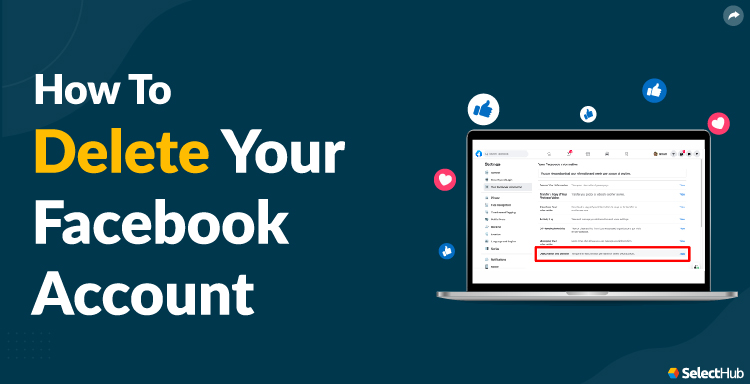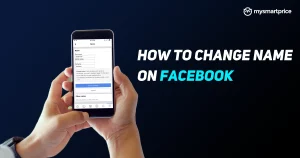
In today’s hyper-connected world, social media has become an integral part of our lives. Among the various platforms available, Facebook stands as a colossal entity with billions of users worldwide. However, there may come a time when one feels the need to step away from this virtual realm and regain control over their online presence. Whether it is due to privacy concerns, addiction to scrolling through endless feeds, or simply wanting a digital detox, deleting a Facebook account can be a liberating decision. So, if you find yourself contemplating the thought of bidding adieu to Mark Zuckerberg’s brainchild but don’t know where to start, fret not! This article will guide you through the process of permanently deleting your Facebook account and help you reclaim ownership of your digital identity.
Step 1: Backup Your Data
Before you embark on deleting your Facebook account, it is crucial to back up all your data. Facebook holds a wealth of information about our lives – from cherished memories and personal messages to important contact details. Losing all this valuable data can be devastating. That’s why taking the time to create a backup ensures that you don’t lose any vital information before saying farewell to the social media giant.
- One way to safeguard your photos is by downloading them individually or using the built-in download feature in the Facebook settings. However, this process can be extremely time-consuming if you have an extensive photo library. Consider using third-party applications like Social Book Post Manager or Pick&Zip, which enable you to batch-download all your pictures at once. These tools not only save precious time but also ensure that no photograph gets left behind when waving goodbye to Facebook.
- Additionally, remember to export your friend list and contacts so that you can easily stay connected with loved ones after leaving the platform. Facebook provides an option for downloading personal account information, which includes a list of friends and their associated email addresses. This comes in handy if you wish to maintain those connections outside of the social media realm or transfer them into another online community effortlessly.
Taking these precautions might seem tedious at first, but they are essential for preserving years’ worth of memories and maintaining vital relationships even after cutting ties with Facebook.
Step 2: Deactivate Or Delete?
When it comes to getting rid of your Facebook account, you have two options: deactivate or delete. Many users are often torn between the two choices, unsure of which is the better route to take. Deactivating your account means temporarily disabling it, while deleting it means permanently removing all traces of your presence on the platform.
Some argue that deactivation is a safer option for those who may have second thoughts or simply want a break from social media. It allows you to step away without losing everything and gives you the chance to reactivate in the future if desired. On the other hand, deleting your account ensures that your information is completely wiped clean from Facebook’s servers, preventing any data breaches or privacy concerns. Deleting also forces you to seek alternative ways of connecting with friends and family, potentially leading to more meaningful interactions outside of the social media bubble.
Ultimately, the decision boils down to personal preference and circumstances. If taking a temporary break sounds appealing or if privacy is a top concern, deactivating might be the way to go. However, if cutting ties with Facebook for good is what feels right for you and aligns with your digital detox goals, deletion might be worth considering as well. Regardless of which path you choose, taking control over your online presence by eliminating or limiting social media usage can lead to a more contented and fulfilling life off-screen.
Step 3: Deactivating Your Facebook Account
Now that you’ve decided to take the bold step of deactivating your Facebook account, it’s important to understand what this process entails. Deactivation is different from deletion as it allows you to temporarily suspend your account while maintaining the option to reactivate in the future. This can be a good middle ground for those who are unsure about permanent deletion but want a break from the platform. However, before hitting that deactivate button, it’s crucial to consider a few things.
- Firstly, think about why you want to deactivate your account. Is it because of privacy concerns? Are you finding yourself spending too much time scrolling mindlessly through your feed? Understanding your motivation will help affirm your decision and make it easier if doubts arise later on. Additionally, take note of any important data or content on your profile that you may need access to in the future. It’s always wise to back up any photos or messages before proceeding with deactivation so that no precious memories are lost.
- When deactivating Facebook, keep in mind the impact it may have on both online and offline interactions. In today’s digital age, social media often becomes intertwined with various aspects of our lives, including communication with friends and family members. Although deactivating may grant you a breather from constant notifications and updates, make sure to inform loved ones beforehand about alternative methods of staying connected during this phase. Building stronger connections outside of social media can actually foster deeper relationships and more meaningful conversations.
Step 4: Permanently Deleting Your Account
Now that you have decided to go ahead with permanently deleting your Facebook account, it’s time to take the final step. But before you do so, take a moment to reflect on the reasons that led you to this decision. Are you looking for more privacy in your online activities? Or perhaps you want to break free from the constant stream of information and notifications? Whatever your reason may be, rest assured that deleting your account will provide a sense of liberation from the digital world.
Deleting a Facebook account is no longer as straightforward as it once was. The platform has introduced a grace period of 30 days before the deletion is permanent. This means that if you log in within those 30 days, your request will be canceled, and your account will be available again. It’s crucial to resist this temptation and stick to your decision during this waiting period. Disconnecting from Facebook can feel like cutting off a lifeline at first, but in time, it opens up new possibilities for authentic connections and real-life experiences.
Step 5: Confirming The Deletion Process
Once you have made the decision to delete your Facebook account, it is important to take a moment to confirm the deletion process. This step serves as a final checkpoint before permanently erasing all of your data from the platform. Confirming the deletion allows you to reflect on your choice and ensures that you are fully committed before taking this irreversible step.
Confirming the deletion also gives you an opportunity to double-check any connected apps or services that may be affected by deleting your account. It’s possible that some of these third-party applications are linked directly to your Facebook profile, and deleting your account could result in losing access or functionality with these apps. By confirming the deletion process, you can assess any potential consequences and make sure there won’t be any disconnections or loss of valuable information from other platforms.
Conclusion:
Taking control of your online presence is more important than ever in today’s digital age. With the prevalence of social media platforms like Facebook, it is crucial to be intentional about what information you share and how it is perceived by others. Deleting your Facebook account can be a powerful step towards reclaiming your privacy and safeguarding your personal data.
By deleting your Facebook account, you are asserting control over the narrative that others may create about you online. Often, we unwittingly provide others with ample material to form opinions or make judgments about us based on our activity on social media platforms. By removing yourself from this equation, you are taking back the power to define who you are and how you present yourself in the digital world.
Moreover, deleting your Facebook account serves as a powerful reminder that there is life beyond the realm of social media. It encourages us to explore alternative ways of connecting with friends and loved ones beyond likes and comments. This decision nudges us to invest more time in real-world experiences, fostering deeper connections and embracing meaningful face-to-face interactions. Taking control of our online presence means making a conscious decision to live authentically both offline and online – it’s an opportunity for self-discovery in an increasingly interconnected world.
By asserting control over our online presence through actions such as deleting our Facebook accounts, we demonstrate that we refuse to be defined solely by our digital footprint. We become empowered individuals who take charge of their own narratives both personally and professionally—a refreshing perspective amidst the noise of constant digital updates.
Also Read: Unveiling The Hidden Secrets Of On-Page Optimization For SEO Success






